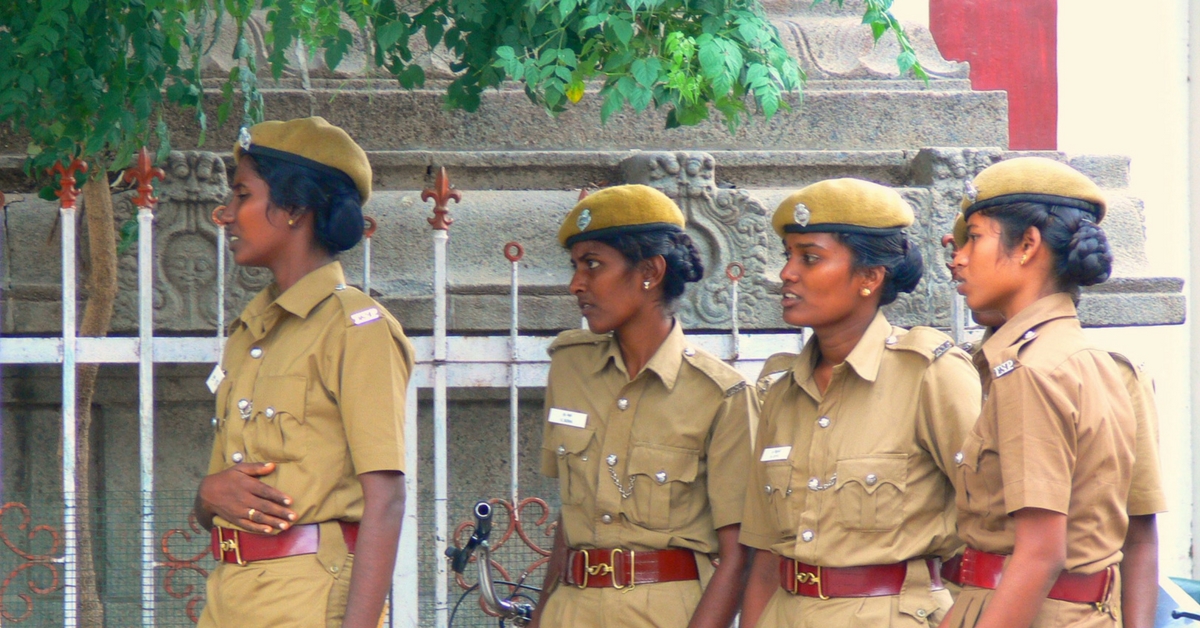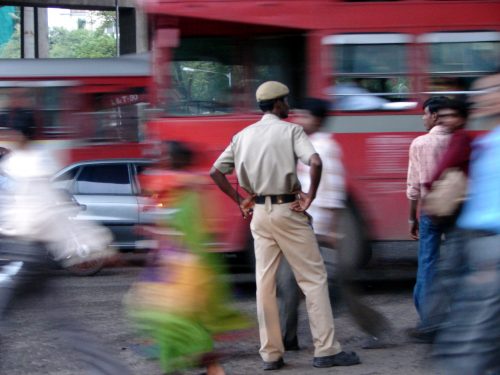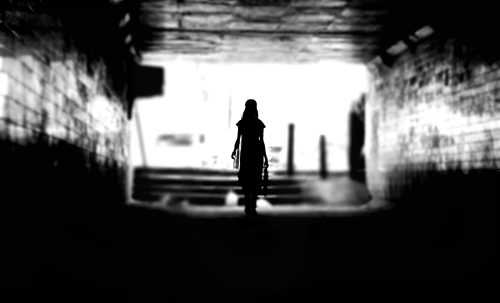TBI Blogs: Meet the Female Sub-Inspector Who Strikes Fear in the Hearts of Mumbai Criminals!
Women are often presumed to be the weaker sex, who need to stay home as housekeepers. However, many women are breaking this stereotype to carve out their own identities. One such woman is a lady sub-inspector at a police station in one of Mumbai’s most notorious areas.

Women are often presumed to be the weaker sex, who need to stay home as housekeepers. However, many women are breaking this stereotype to carve out their own identities. One such woman is a lady sub-inspector at a police station in one of Mumbai’s most notorious areas.
Pramila Kshirsagar, a resident of Ahmednagar, is the woman sub-inspector of the Gamdevi Police Station, next to Kamathipura, one of the most ill-reputed areas of Mumbai. “I am a trainee here, and am studying to be a DYSP (Deputy Superintendent of Police). I was posted here from Ahmednagar, and I passed my exams from Madhya Pradesh. When I got married, my husband, a software engineer, followed me to set up base in Mumbai,” says Pramila, sitting in her plush office, a startling contrast to the popular image of a thana, or police station, with its peeling paint and crumbling facade.
As one of the oldest neighbourhoods of the city, Kamathipura has been witness to a number of cases important in the criminal history of the city, with its infamous “cages” and derelict chawl buildings abutting the core commercial hub. It sets the mood to a series of paradoxes that become part of the conversation with the young policewoman in her neatly-pressed khaki uniform. Pramila was posted here two and a half years ago.
“I have a shift from 8 AM to 8 PM. At times, during emergencies, I have to stay back nights at the thana. I entered the police force because I lived in poverty and there was no family to support me. After a gruelling training period, I attained this post. However, I have further ambitions, of being a DYSP,” she says confidently. Pramila has six cases to deal with, ranging from theft to gang robberies. She seems fearless and nonchalant as she talks about them. She is one member of the large Mumbai police team, a group often misread as being corrupt and with minimum educational qualifications. On the contrary, these guardians of the law have passed their main civil service examinations.
They are also considered to be one of the best police forces of the country, credited for the remarkable decline in crime rates in the district over the years.

“As a girl, I was wary of violence. I never raised my hand against anyone. I remember the first time I gave a thrashing to someone. She was a woman who refused to acknowledge her robbery. My hand wavered, yet I was able to beat a confession out of her,” Pramila says, burying all charges of women being the weaker sex. “Along with my work, I also manage my family. I cook in the morning and leave. My husband takes care of the other chores,” she says. Pramila is the natural home-maker and the tough cop all in one garb, an inspirational contradiction to the stereotypical image of Indian women.
For many, being born a woman into an Indian household entails responsibilities. It involves knowing that at a certain period in your life you will have to manage your household and be submissive to your in-laws. It also involves knowing that irrespective of the time of day you go out, you have to be extra-careful of lecherous men who roam the streets.
Then there are the accusations that people may level against you about being the weaker sex, the one physically incapable of tough labour, and the one whose nature, by virtue of birth, has to be demure and motherly.
Society heaps so many burdens on the shoulders of the Indian woman that it is refreshing to see one of valour take apart these pre-conceived notions and grind them to dust.

“I have faced no discrimination at work. I handle women-related cases as well as hardcore male criminals. There are no gender skews as such,” Pramila insists, with tacit reference to the recent case in Mumbai of a conductor molesting a woman constable on a bus. Police stations, ironically, are not the safest places either. There have been issues of rape happening in police stations, and of incessant beatings of innocent people by policemen. Pramila maintains that she hasn’t experienced or witnessed any such atrocities yet.
All through the thana, we see a changing dynamic. Women constables handle new cases and usher in attendees and criminals alike. A woman cop handles the interrogation of a man in a room. It is not uncommon to see woman beat-marshalls dressed in their khaki pantsuits, with their hair worn up in a stark no-nonsense bun, patrolling the streets after dark.
These are modern Indian women who refuse to acknowledge the weight on their shoulders and approach the world with a confidence and stature that is refreshing.

Once upon a time, Indian women had to keep their heads covered, and look at strangers through latticework (jaali) or be in purdah. Today, the tradition continues in a new form. The woman of today must often look at people through the purdah of suspicion and mistrust. These are women who grew up in tough training camps, learned martial arts, and the fine arts of negotiation. These are women who recognise that pre-conceived notions are baseless metaphors, that in this world they are as strong as they choose to be. Pramila joins ranks with her male counterparts without insecurity or trepidation, and will hopefully usher in gender parity.
Find out how you can help the People Place Project identify more such inspirational stories across India, here.
All images are for representational purposes only. Featured Image Source: Flickr
Like this story? Or have something to share? Write to us: [email protected], or connect with us on Facebook and Twitter.
NEW: Click here to get positive news on WhatsApp!
If you found our stories insightful, informative, or even just enjoyable, we invite you to consider making a voluntary payment to support the work we do at The Better India. Your contribution helps us continue producing quality content that educates, inspires, and drives positive change.
Choose one of the payment options below for your contribution-
By paying for the stories you value, you directly contribute to sustaining our efforts focused on making a difference in the world. Together, let’s ensure that impactful stories continue to be told and shared, enriching lives and communities alike.
Thank you for your support. Here are some frequently asked questions you might find helpful to know why you are contributing?


This story made me
-
97
-
121
-
89
-
167













